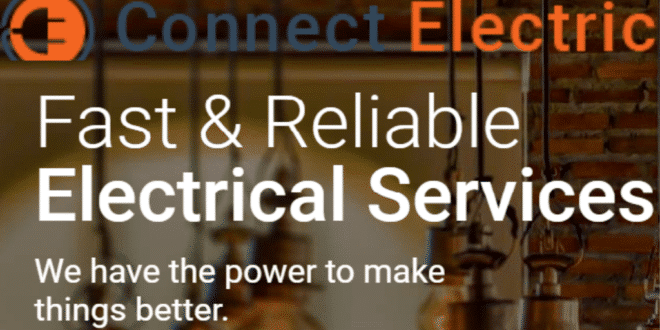Many people are interested in living green. However, not everyone can afford to take the big steps needed to get there.
An eco-friendly lifestyle has many benefits. There’s the mental and emotional benefit of knowing that you are helping our planet stay healthy. It’s also good for your surroundings because it means less pollution, which is harmful to everyone.
The problem is that living green may seem out of reach if you are trying to get a foothold on your finances. Whether you are trying to make a positive change for yourself or trying to recover from a setback, money can seem like an obstacle.
Remember that you don’t have to do everything at once. You can make small, gradual changes to reach your goals. In fact, some changes could end up saving you money in the long-term. That’s good for the planet and good for your long-term financial stability. Connect Electric wants to share easy methods that you can use living green on a budget.
How to Afford Living Green on a Budget
- Set Aside Time for Weekly Meal Prep
Pre-made meals and meal delivery services sound appealing, but these are a luxury that can get expensive. Instead, set aside five hours each week to handle meal prep. This doesn’t have to be done all at once. It could be an hour per day or any other arrangement that works with your schedule.
Use this time to chop, slice, peel, and prep ingredients or entire dishes. By doing it yourself rather than paying restaurants or spending more on pre-made foods, you can cut costs and reduce food waste.
- Buy Organic Produce When It Is in Season
Organically grown produce is often grown in smaller farms that are better for the environment. They usually apply methods that conserve water, reduce pollution, increase soil fertility, reduce erosion, and increase energy efficiency.
When buying from organic farms, make sure you stick with produce that is in season in the area. This is when you’ll find the cheapest prices compared to the rest of the year.
- Buy Foods Straight from the Source
Going straight to the source means you aren’t paying the added fees of a middleman. It also means that your foods are going to be as fresh as possible. The only way to get it fresher is if you grow or make it yourself.
Check for community-supported agriculture or local organic farms in your area. For example, some locations may allow you to purchase meat even before it is butchered. You’ll get a variety of cuts for as little as a few dollars per pound. It was locally raised and butchered, so you won’t be adding to pollution caused by transportation.
- Reduce Water Consumption
Reduce your water consumption as much as you can. That doesn’t mean not taking showers, but it does mean trying to limit the amount of time you’re in the tub.
You can also turn the faucet off while brushing your teeth, install dual or low flush toilets, and avoid overwatering your lawn. Use a rain barrel to collect water for the garden. These small changes reduce household water waste and will trim down your monthly utility expenses.
- Take Advantage of Reusable Bag Refunds
Many retailers encourage customers to switch to reusable shopping bags with incentives. Check your local grocery store or other businesses you frequent to find out if they offer this type of program. Some give you a small refund on your purchase while others may allow you to accumulate points for coupons and discounts.
It may seem small, but over time, those incentives will add up. And while you shop, you won’t be contributing to the 500 billion to one trillion plastic bags that are used around the world and discarded annually.
- Switch to Eco-Friendly Light Bulbs
It may be tempting to buy cheaper incandescent light bulbs but consider the long-term effects of your decision. Incandescent lights are not efficient and require frequent replacements. The initial cost of a CFL or LED bulb is higher, but it is a worthwhile investment.
CFL lights last over five times as long and use far less electricity. LEDs are even better. They consume 75% less electricity than incandescent bulbs and offer up to 50,000 hours of use, which is 50 times longer than incandescent bulbs and 8 to 10 times longer than CFLs.
If you can’t afford to buy enough LED lights for your entire home, start with just one or two. Then replace your existing bulbs with LED as they burn out.
- Rent, Borrow and Buy Pre-Owned Entertainment
There are many ways to find entertainment without paying for brand new books and movies. Check out your local library for free rentals. You can also borrow items from friends and family or browse pre-owned sellers.
You’ll pay much less than you would for new entertainment options. You also won’t be contributing to the consumption of fossil fuels and the production of greenhouse gases and waste that is part of the manufacturing process. You may be rescuing usable items that otherwise end up in landfills.
- Buy a Reusable Water Bottle and Straws
Did you know that over 60 million plastic bottles are dumped in landfills and incinerators daily? That comes to approximately 22 billion each year. It’s a huge problem and one that we could significantly decrease just by reusing containers.
Buy a reusable water bottle and straws instead of purchasing cases of bottled water. By reusing your own bottle, you will help lower the amount of plastic waste in the world. Reusable straws are also beneficial. If you like to buy beverages, ask the business if you are permitted to use your bottle instead of their disposable cups.
When you can fill up at home, you’ll also save the money you would have spent on cases of water. If the water in your area doesn’t taste good, consider adding a filter rather than continuing to buy from outside sources.
The Other Straw offers reusable bamboo straws. They are eco friendly, compostable and ethically handcrafted from sustainably grown, organic bamboo
- Wash Your Laundry with Cold Water
You can wash your laundry in cold water and still get clean fresh-smelling clothes. Some detergent brands sell cold water-specific products. Choosing cold over hot will lower your energy consumption and your gas or electric bill.
Coldwater is easier on your garments. It is less likely to fade colors or cause shrinkage compared to hot water. That means your clothing will last longer so you don’t have to shop for replacements as often.
- Save Up for Home Solar Panels
While there are many things you can do right now living green, you should also have long-term goals. Setting aside money each month can help you save up for a bigger improvement, like solar panels.
The initial cost will be in the thousands, but the long-term savings far outweighs the price. Once installed, solar panels require little to no maintenance and have a lifespan of 20+ years. They don’t automatically stop producing after they reach their life expectancy. The efficiency starts to degrade after that point, so they are still useable.
Depending on capacity, you may be able to power all or most of your household using solar, so you don’t’ have to pay the electric company. Some areas also offer government incentives and tax breaks for new installations.
Contact your local electrician if you have questions about living green with solar energy. We can help you find a solution that is eco-friendly and easy on your budget.
Start living green and practice these easy methods of how to live greener on a budget from Connect Electric
Liked this article? Share it to say “thanks!” Your support is much appreciated!
I would love to connect with you!
You can find me on TWITTER1, TWITER2, INSTAGRAM FACEBOOK, PINTEREST,








